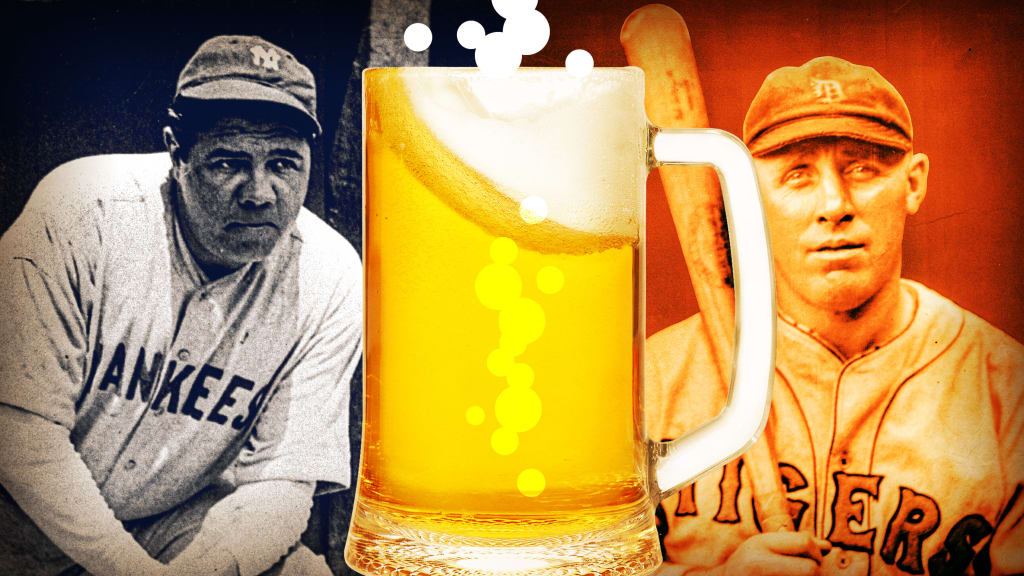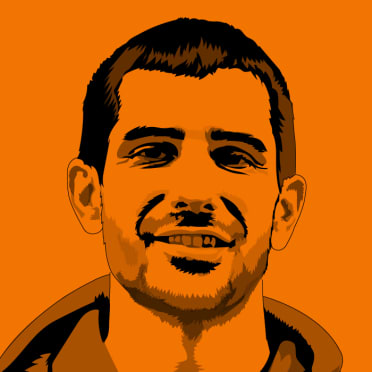
He was as “round as he was tall,” standing just 5-foot-10 and weighing in at an especially hefty-for-the-time 230 pounds, but the man affectionately (and sometimes, not so affectionately) known as Fatty Fothergill could have been a Hall of Famer – if he had just gotten a couple thousand more at-bats.
Here's the story of one of baseball's best hitters and biggest personalities.
The nicknames
His real name, of course, wasn't Fatty. It was Bob. But he was definitely a bit overweight.
Some say he was 230 pounds, others say 240 or maybe even 260. The reason why the Massillon, Ohio, native even became interested in playing big league baseball was because he heard managers kept their players well-fed. He was called "Fats" or "Fatty" throughout his 12-year career (mostly with the Tigers), with newspapers simply referring to him as "The fat boy" or "man mountain."
Fothergill was proud of his weight, not letting it hamper him from stealing bases or running into outfield fences. His play and colorful personality eventually earned him another nickname in Detroit: "The People's Choice." He told the New York Times he was better with a few extra pounds on his frame, “Detroit pays me to hit. I can’t hit if I ain’t got the power and I ain’t got the power if I don’t eat. And when I eat what I like I get fat. When I diet, I don’t hit. So what in blazes am I going to do?”
A hitting machine
Saying Fothergill could hit is an understatement. He batted above .300 twice in the Tigers' Minor league system -- including .383 in 101 games with Rochester -- before being called up to the big club in 1921. There was a problem, though: The Tigers were absolutely stacked in the outfield with future Hall of Famers Ty Cobb, Bobby Veach and Heinie Manush patrolling the grounds for much of the 1920s. In part-time play (763 at-bats) from 1922-25, Fothergill was still able to put up a .324 average. He struck out just 44 times during that span.
When he finally got to play some full seasons, Fothergill excelled. He hit .367/.421/.506 in '26, finishing 12th in the MVP vote. He hit nine homers with 114 RBIs and slashed at a .359/.413/.516 line in '27. But because other Tigers were flirting with .400 every year, Fothergill was still mostly relegated to pinch-hitting. He became one of the best all time in the department. In fact, he's the only player to pinch-hit for Cobb after Cobb's rookie season. He even hit when he couldn't walk. From "Cobb Would Have Caught It: The Golden Age of Baseball in Detroit":
Cobb looked down the bench and asked, "Who here can hit?" Fothergill had a badly sprained and taped ankle, but he volunteered, "I'll try." Cobb said, "My gosh, you can hardly walk." Cobb sent him in, and Fothergill hit a line drive into the right-field corner that should have been a double, but Fothergill fell about two-thirds of the way to first base. "He crawled the rest of the way and got a single. Just barely.... But that's the way we played ball back there and then."
Fothergill's .325 career average is good for 37th all-time, just below Honus Wagner and above Joe DiMaggio. He struck out a meager 177 times in 3,583 plate appearances.
Defense and speed
Fothergill was reckless in the outfield. He ran into walls and overran routes -- sometimes having balls bounce off his butt. Still, Detroit newspapers claimed he was maybe the best outfielder, with the best arm, on the legendary Tigers teams of the 1920s.
And he was same way on the basepaths. He didn't worry about his weight, stealing bases whenever he could. From SABR:
“When Fothergill took a header into a base, it was an eye-filling spectacle, and he loved to steal because it was one of his life-time ambitions to correct any impression the fans might have that because he was big he was slow. Fothergill was proudest, next to his hitting, of his ability to get around.”
He had 42 steals and 52 triples in 12 seasons. One of his best triples came after manager George Moriarty told the team stealing home is easy and they should do it more. Fothergill apparently told the team he'd show them how it was done. He went to the plate, hit a three-bagger and then stole home on the very first pitch.
Teammate Charlie Gehringer even recalls Ozzie Smith-esque agility from Fothergill during one game at Fenway Park. Again, from "Cobb Would Have Caught It."
"I remember we were in Philadelphia once and we were getting beat about 13–0 going into the last inning when he hit a home run. He's rounding the bases nice and easy--and then when he gets to third base he comes running like a freight train and does a complete flip in the air and lands on home plate! Never saw him do that before."
Beer drinking and eating an umpire?
Fothergill, as you may have guessed already, enjoyed a libation every now and again. As Lee Allen wrote in "The Complete Armchair Book of Baseball," the outfielder took relaxation to another level postgame.
“He was one of the last of those rare spirits who appeared to play for the fun of it, and he seemed to be able to extract the fullest amount of pleasure from life. After the game, you could find him with a thick porterhouse steak and a seidel of beer, and he would chuckle to himself, ‘Imagine getting paid for a life like this!’”
There's even a tale of him challenging Babe Ruth and teammate Harry Heilmann to a beer-drinking contest and winning handily.
Even though he felt comfortable at his playing weight, Fothergill would try to shed pounds at different points during his career. That didn't always work out, though. As noted in "Baseball Hall of Shame: The Best of Blooperstown," in 1926 Fothergill had been on some diet that involved working out in rubber suits and soaking in Turkish baths. After disagreeing with a third-strike call, he argued with the home-plate umpire and then bit him on his arm. He was tossed from the game, but not before getting in a legendary line: "It's OK by me. That's the first bite of meat I've had in a month."
Fothergill's pro career ended at age 35 with the Red Sox; he was cut to make room for younger talent, even though he had hit .344 through 28 games. He went on to play in the Detroit Amateur Baseball Federation, where he made shoestring catches in right field and hit an otherworldly .800.
Who knows the heights Fothergill could've reached if he played full seasons every year? He had 1,064 hits in 1,106 games -- could he have picked up 3,000 if he played more regularly? How many more flips onto home plate did we miss? How many postgame beers went unfinished?
We'll all just have to dream and imagine what could've been in the life of Bob "Fatty" Fothergill.
